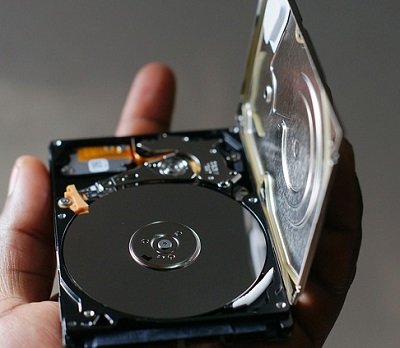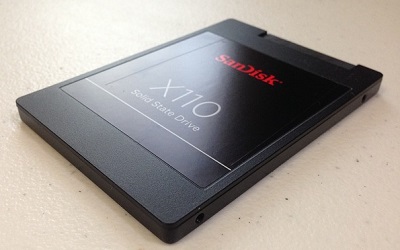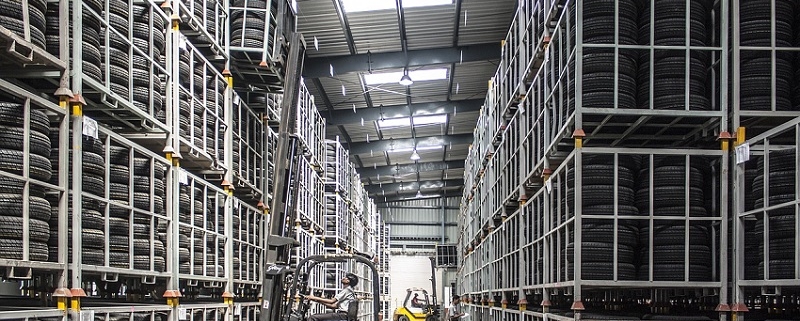What is an SSD Hard Drive?
Choosing the right hard drive for a computer can be important. The hard drive is what saves all of the information on the computer, allowing it to load the operating system and any programs that might be used on the computer. It also saves all files you create so you can store them and access them easily. When you need a new hard drive, you need to choose between HDD and SSD Hard Drive.
HDD Versus SSD

Hard Disk Drive
HDD, or Hard Disk Drives, have been used for storing data since 1956. Basically, these hard drives use magnets to store information on a spinning plate inside the hard drive. The faster the plate spins, the faster information can be stored or recovered. This is the least expensive way to store information nowadays and it’s common today to see HDDs that can hold a terabyte of information.
SSDs, on the other hand, do not have anything that moves inside of them. Inside, they more closely resemble the inside of a flash drive. Most SSDs today use NAND flash memory, the same as flash cards, to store information. This is stable and can allow the stored information to be kept for years. They are larger than flash cards and can hold quite a bit more information as a result.
Different Types of SSD Drives
There are two main types of SSD Drives, SATA or PCIe. SATA drives connect using the same cables as an HDD, making it easy to use the SSD in place of an HDD. They’re typically 2.5 inches, so around the same size as the hard drive in a laptop.
PCIe cards connect to the PCI Express slot on the motherboard and are usually only found in desktop computers because of how they connect. There simply isn’t room for them in most laptops. Because of the way they connect, this type of SSD isn’t usually a good replacement for an HDD unless there is room for it when the computer is built.
M.2 is a module that provides support for both SATA and PCIe interfaces. They connect via a dedicated connector on the motherboard and are typically used to provide increased performance. With the M.2, it’s no longer necessary for people to purchase a dedicated PCIe SSD card.
When to Use an SSD Drive

SSD Hard Drive
SSD drives offer speed. They’re much faster to HDDs and can reduce the wait time for the operating system to load, for programs to start, or to open and save files on the computer. HDD has been the standard for a long time, but most people move to SSD simply because of the boost in speed. SSDs can also be used alongside an HDD in the computer, allowing for speed when starting the computer or opening programs, but stability with the files stored on the HDD. Most laptops will just have one type of hard drive, so choosing speed is an option that many people make, especially if they’re going to be using the laptop for gaming.
When Not to Use an SSD Drive
HDDs are better when mass storage is needed. When a lot of information needs to be stored, HDDs offer the storage for a much smaller cost compared to SSDs. Stability may also be a concern when a lot of information needs to be stored. Though SSDs can store a lot of information and will be able to access it faster, they do not tend to last as long as HDDs and aren’t able to handle information being written over as well as HDD drives.
In laptops, it’s likely there will only be enough room for one hard drive. In these cases, it’s important to consider whether speed or storage space is more important and to look into the costs for the amount of storage that’s needed. In desktop computers, it’s possible to use more than one hard drive. An SSD can be used to load programs with speed while an HDD or a few HDDs can be used to store the actual information on the computer. This cuts down on costs while still boosting the overall speed of the computer.
While HDDs have been around for a long time, SSDs are becoming the new standard because of the speed they offer. When you need to purchase a new hard drive for your computer, consider the differences between SSDs and HDDs so you can make sure you choose the right one for your needs. This will allow you to make sure your computer runs the way you want it to run and stores as much information as you might need.
- About the Author
- Latest Posts
Claudia is a senior editor and contributor to Biteno GmbH. She loves to review new technology and enjoys travelling in her free time.


